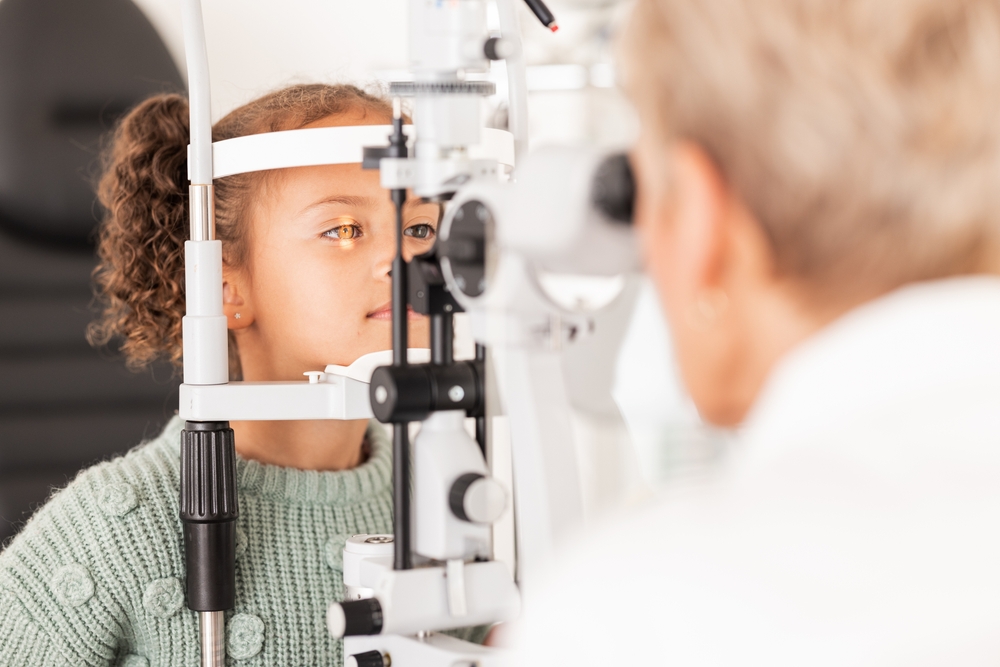Posted by: Eye Health Northwest in Children, Eye Exams on August 26, 2024

Regular checkups with a pediatrician are an essential part of keeping children healthy. Eye exams are just as important for kids’ health and development.
Clear, healthy vision helps kids do better in school and allows them to enjoy sports and activities. Keep reading to learn more about whether kids need to have eye exams.
When Do Children Need Eye Exams?
Eye care is an important part of health care for people of all ages, including children. Children should have periodic vision screenings, which they may get as part of a well-child visit or at school.
These screenings are great for identifying when kids might need glasses to correct a refractive error. However, they typically don’t screen for other eye health conditions.
Visiting an ophthalmologist for a comprehensive eye exam can identify eye issues that a vision screening doesn’t spot. The American Academy of Ophthalmology has guidelines about how often your child should undergo vision screenings or comprehensive eye exams based on their age:
Newborn and Infant Screenings
All babies should have an eye screening as newborns and another screening before their first birthday. These tests include non-invasive screenings that only take a few minutes and don’t require feedback from the child.
The first test is checking the “red reflex.” Their provider shines a bright light into each eye to see if it shows a red reflex, like “the red eye” in a flash photo.
Then, they will check blinking and pupil response and check for proper eye alignment and movement.
Toddler Eye Exams
Children younger than school age (around 3-5 years old) should see an ophthalmologist at least once to screen for vision issues common in early childhood, such as farsightedness or an eye turn. An eye exam is especially important if the child has an underlying condition that increases the risk of eye problems or a family history of vision issues such as strabismus.
These exams are non-invasive and painless. Children may have to respond to simple verbal cues like “Look at my hand, but don’t turn your head.”
The testing can identify conditions such as:
- Strabismus, or misaligned eyes
- Amblyopia, or “lazy eye”
- Refractive errors such as nearsightedness, farsightedness, and astigmatism
- Other focusing problems
Screenings for School-Aged Children
For children 5 years and older, it’s recommended that they undergo a vision screening annually. Many children receive yearly vision screenings at school or during their annual well-child exam.
These exams can reveal refractive errors that indicate a need for glasses. Nearsightedness, or myopia, is a common vision problem with children of this age.
If your child fails a vision screening or complains of headaches or eye strain, you should schedule a comprehensive eye exam with their ophthalmologist at EyeHealth Northwest. Other signs of vision challenges are difficulty learning to read, clumsiness, or sitting very close to the TV screen.
Even if they are not experiencing vision problems currently, children with certain conditions such as Down syndrome or learning disabilities should undergo a comprehensive eye exam at this age. At a comprehensive eye exam, their eye doctor will use special testing like pupil dilation to examine for signs of eye conditions.
Children who wear glasses should also see their eye doctor every year to make sure their prescription is up to date. Children often have changes to their vision over time and need adjustments to their glasses to keep their vision clear.
Is your child due for an eye exam or vision screening? Schedule an appointment at EyeHealth Northwest in Portland, OR, today!

